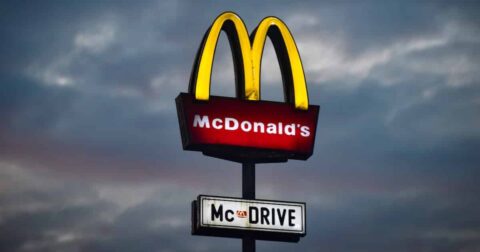News
GLP-1 Users Lose Weight, and Their Taste for Meat
Research•3 min read
Perspective
Foods that are popular in white-dominated, wealthy nations are often considered more desirable by developing countries, but they come with their own costs.


Words by Leila Dehghan
“We are a weak people because we do not eat meat.” These were the words of Gandhi’s high school friend Sheik Mehtab who believed that the British could rule over India because they were meat-eaters. Meat made them strong, physically, and mentally. Meat could give Gandhi the clarity of mind to see the absurdity of his fear of the dark. Gandhi was persuaded by his friend to try goat meat, but ultimately could not align a carnivorous diet, nor even the consumption of milk, with his promise to his parents to practice ahimsa—non-violence. Though he became vegetarian, he later wrote in his autobiography that “it is essential to eat meat”—words reflecting the power of colonialism that lingers to this day.
The colonialist notion that “white is better” influences today’s food choices within Asian, African, and South American countries, resulting in higher rates of animal product consumption. Less-developed countries often aspire to achieve the values and traditions of Western societies because it seems that the majority-white people in Western countries enjoy a better quality of life. This fascination aids in the perpetuation of neocolonialism—domination by Western countries facilitated through culture and lifestyle.
Colonized mindsets in developing countries render foods that are popular in white-dominated, wealthy nations as more desirable. Meat, especially red meat, has historically been a food of the rich. Anybody who could get hold of something as scarce and expensive as meat has always been considered of higher status. The Western, animal-rich foods offered by chain restaurants like McDonald’s, Kentucky Fried Chicken, and Pizza Hut—which are largely viewed as symbols of Western culture—are sought by the growing middle-class in countries such as India and China as a way to demonstrate higher social status and identify themselves as ‘better.’ The social value attributed to Western foods has turned McDonald’s into a household name across the globe, with China, Japan, and Brazil among the top ten countries with the most locations outside of the U.S. Fast food corporations continue to exploit the colonized mindset that deems anything Western as superior.
Replacing traditional diets in Africa, Asia, and South America—which are mainly plant-based foods consisting of rice, beans, and vegetables—with a Western diet high in animal products can come with health costs. Dairy milk was first introduced to many colonized nations when European settlers wanted to continue consuming milk products as they did in their countries of origin. Today the dairy industry in Latin and South America is one of the fastest-growing markets globally, with Brazil accounting for the largest number of dairy consumers in the region despite the fact that 85 percent of its population suffers from lactose intolerance. China’s recent obsession with dairy tells a story of a nation that considers cow’s milk a barometer of progress and a good life. In 2006, China’s then Prime Minister Wen Jiabao dreamed of a China in which every child could drink milk each day, even though 85 percent of the Chinese population is believed to be lactose intolerant. As the consumption of dairy and meat increases in China, so do cancer rates, with a high occurrence of colorectal, prostate, and female breast cancer—all proven to be linked to diet. China is not the only country to witness a decline in the health of its population after adopting Westernized diets. According to the World Health Organization, rates of non-communicable diseases such as type 2 diabetes, cardiovascular disease, and cancers, largely resulting from diets high in animal products and processed foods, are currently responsible for seven out of ten deaths in developing countries. Adopting a Western diet is literally killing people.
Westernized diets that center on meat and other animal products are also wreaking havoc on environmental health. The demand for red meat by Asia’s growing middle class has turned Brazil into the world’s largest exporter of beef. Cattle ranching is a major driver of deforestation in the Amazon Rainforest and was identified as one of the main causes of record-breaking wildfires in 2019 that resulted in São Paulo’s sky turning completely dark. Burning land for cattle pastures or cropland to feed animals not only releases carbon dioxide into the air but reduces the number of trees capable of absorbing the gas. This compound effect contributes to climate change. Another consequence of the carbon dioxide released into the atmosphere is the increased air pollution which has exacerbated the symptoms and risks of lifestyle diseases such as heart disease, asthma, and chronic obstructive pulmonary disease. Humans pay a price when the environment is damaged.
Neocolonialism perpetuated by the global food system supports the exploitation of black people, indigenous groups, and people of color (BIPOC) in developing countries. BIPOC, who often have few employment options thanks to systemic oppressions, are used as cheap labor in places like factory farms, where the working conditions are hazardous and often result in physical injuries. At other times, people aren’t paid at all. The giant food conglomerate Nestlé, a major player in distributing Western products on a global scale, has repeatedly been accused of using child and slave labor in Africa. People working for multinational corporations can also be treated poorly. The International Union of Food workers has called Coca Cola, another prominent symbol of Western culture, a serial human rights offender because of the company’s repeated unlawful termination of workers in East Asia and South America. There is no doubt that Western food companies play an important role in perpetuating neocolonialism.
A solution to the myriad problems posed by Westernized diets can be achieved through the process of decolonization, whereby commonly held belief systems that do not serve the best interests of the people are deconstructed and ultimately rejected. For too long, the colonial mindset has embraced stigma around traditional foods from non-white cultures. Food not only provides nourishment for the body but sustains a sense of identity and culture, which is why it has been weaponized as a tool to exert power over less-developed countries. Formerly colonized nations can reclaim independence by disposing of the ideological power the former colonies still hold by refusing to eat at McDonald’s, and instead embracing traditional cultural dishes, flavors, and ingredients that promote better individual and collective health. Turning down unhealthy Western foods would go a long way toward decolonizing nutrition.
Despite his refusal to consume meat, rendering him weak in the colonized mindset, Gandhi demonstrated powerful leadership and eventually put an end to the foreign rule of India. But are India and other emancipated nations truly free? If human and environmental health is any indicator, then many former colonies are not faring well. Colonial ideologies and Western lifestyles continue to exert a negative influence on formerly colonized nations. Regaining human and environmental health by adopting traditional plant-based diets is a major step towards freedom.